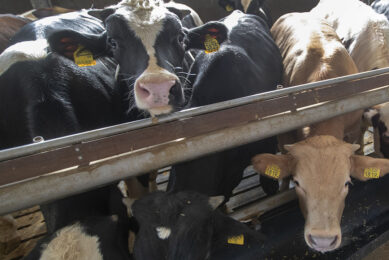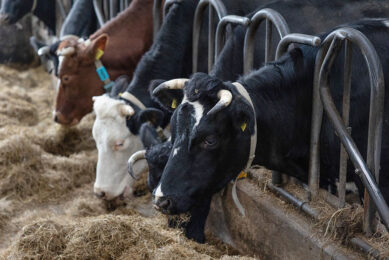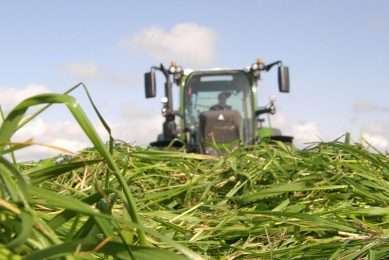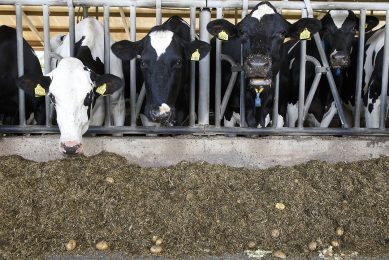Special feed halves methane production or ruminants
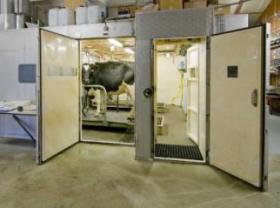
Nitrate and sulphate reduce methane production in the rumen of cattle and sheep. If their feed contains a small percentage of these substances the amount of this powerful greenhouse gas produced by sheep is halved, research by Sander van Zijderveld has shown.
Van Zijderveld, a PhD student at the Animal Feeds group at Wageningen University hit the headlines two years ago when he fed cows feed containing garlic.
<– The methane output of sheep and cows is measured in a purpose-built respiratory cabin at Wageningen University. (Photo: Sander van Zijderveld)
In vitro tests suggested that garlic reduced methane production. Van Zijderveld, who is employed by feed producer Provimi, had wanted to keep his tests secret, really. “But there was a journalist in the testing shed who clearly smelled garlic,” he said.
Poor results in animals
In the end, the discovery turned out to be a disappointment. “Feeding cows garlic does not reduce methane production and it also makes the milk smell garlicky.”
Neither was the desired effect achieved using linseed oil or powdered yucca extract, which reduced methane production in the lab.
50% less methane
But now Van Zijderveld has discovered two little substances that really do reduce methane production in cattle and sheep.
He listened to emeritus professor Ron Leng from Australia, who advised adding nitrate (NO3) and sulphate (SO3) to feeds. Zijderveld tested this on 20 sheep on the Dutch island of Texel.
The sheep that were fed 2.6%t nitrate in the concentrate produced 32% less methane. Sheep that were given the same amount of sulphate released 16% less methane. And a combination of the additives reduced the animal’s methane production by half.
Harmless
Adding 2.6% of these additives is a bit much, says van Zijderveld. “If you suddenly give that sort of concentration to the sheep, their blood may be able to absorb less oxygen. That is unhealthy and for that reason these correlations have never been tested.
“But the Australian professor suggested that the ruminants should be given time to adjust gradually. This enables their stomach bacteria to convert the nitrate into a harmless product from which they can extract nutrients.”
Van Zijderveld showed that dosing it like this had no ill effects on the health of the sheep. He published his research on sheep in the Journal of Dairy Science.
Tests in cattle
Meanwhile, Van Zijderveld has also tested the nitrate on a group of dairy cows. In cows the nitrate seems to be less effective than in the sheep: methane emission went down on average by 16%. He is still figuring out why the reduction is less than in sheep.
However, technically the additives are a success. Livestock farming is a major producer of greenhouse gases, including methane. These are generated in the stomachs of ruminants and are released into the environment for 95% via belching through the cow’s mouth.
Economic value
But however much methane is produced, it remains difficult for Provimi to launch these feed additives on the market.
“Nitrate and sulphate do not raise milk production, so adding them has no economic added value for the farmer”, says Van Zijderveld.




